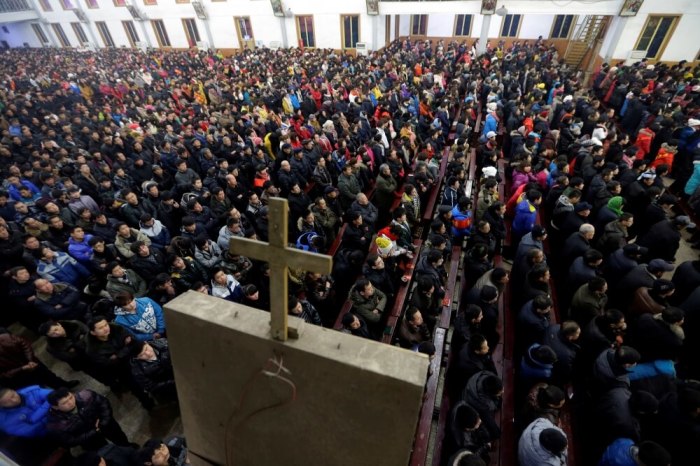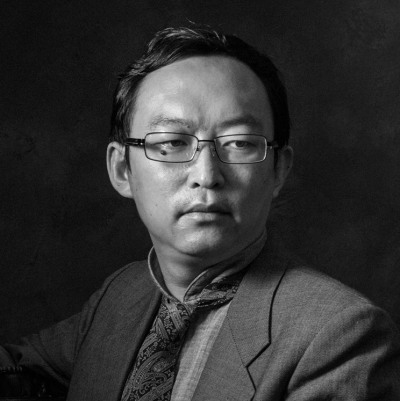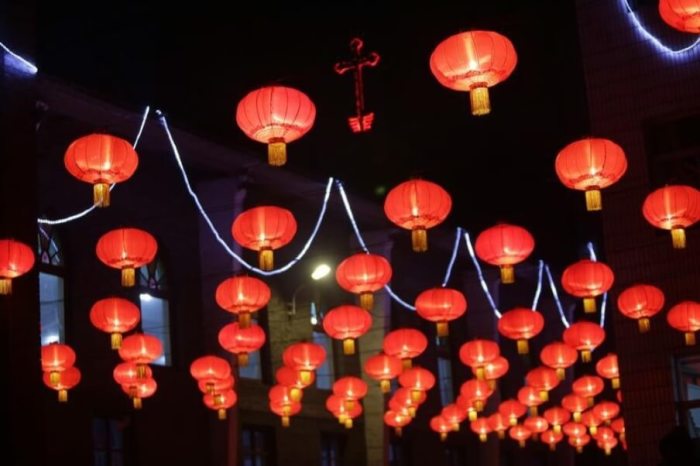'Christianity Is China's Future,' Chinese Best-Selling Author Predicts

Despite constant destruction of churches, tearing down of crosses, and jailing of believers at the hands of the authoritarian Chinese government, best-selling Chinese author Yu Jie predicts that "Christianity" is China's future.
Yu, a devout Christian and an author of over 30 books who is active in the Chinese dissident movement, wrote in an op-ed published in the August edition First Things that Christianity and the Chinese urban church movement is laying the "seedbed" for democracy to flourish in the Communist Asian nation.
Although the Chinese regime of Xi Jinping has been active in telling religious leaders that they must adapt to social order of the communist government and "merge religious doctrines with Chinese culture," Yu argues that the Chinese government's hostility is because Xi recognizes Christians as the biggest threat to the communist government.

"At the end of the Chinese Civil War in 1949, when the Communist Party defeated the Nationalists and founded the People's Republic of China, Christians in China numbered half a million. Yet almost 70 years later, under the Chinese government's harsh suppression, that population has reached more than 60 million, according to Fenggang Yang, a sociologist at Purdue University," Yu wrote.
"The number grows by several million each year, a phenomenon some have described as a gushing well or geyser. At this rate, by 2030, Christians in China will exceed 200 million, surpassing the United States and making China the country with the largest Christian population in the world."
The Chinese government appears so threatened by the Christian growth in the country that it is now even threatening to ban Christian students who attend a house church in Guizhou province from going to college unless they stop going to church. Additionally, Xi told members of the communist party that they must be "unyielding Marxist atheists," who will "resolutely guard against overseas infiltrations via religious means."
"As a leader, Xi seems rather insecure," Yu added. "He is suspicious of civil society and sees Christianity as a threat: It is the largest force in China outside the Communist Party."
Yu recalled his own arrest in 2010 because of his relationship with Liu Xiaobo, the winner of the 2010 Nobel Peace Prize for his fight for human rights in China.
"On the night of Dec. 10, 2010, as the Nobel Peace Prize ceremony honoring Liu was taking place in Oslo, I was kidnapped by the secret police and taken to the outskirts of Beijing. They beat and tortured me for hours, breaking my fingers one by one," he explained. "I blacked out and was taken to a hospital. A hospital in Changping, a suburb of Beijing, refused to take me, saying I was 'hopeless.' Then I was taken to a hospital in Beijing. My life was saved."
After being under house arrest for over a year, Yu and his family emigrated to Washington, D.C. where Yu's wife is a pastor at Harvest Chinese Christian Church in the suburbs of the District of Columbia.
Yu states that despite the government's organized campaign to destroy churches, remove crosses and crackdown on religious freedom, Chinese christians are not deterred by fear.
"Chinese Christians have refused to give in. One of the phrases I have heard most often among them is: 'The greater the persecution, the greater the revival,'" he explained. "For Christian dissidents, cross removals and church demolitions are only the prelude in a story that repeats the Passion and Resurrection of Christ. They talk about how during the Cultural Revolution, the Christian population in Wenzhou actually grew many times over."

Since the year 2000, Yu states that Christianity in China has directed its growth in a number of central cities in the country.
"Groups of young, well-educated, active professionals have gathered in urban churches, smashing the stereotype in many Chinese people's minds of Christians as elderly, infirm, sick, or disabled," Yu wrote. "These churches are unable to register with the Ministry of Civil Affairs and acquire legal status, but they are a first step toward Christians assuming leadership in the development of a Chinese civil society independent of government control. They have websites, assembly locations, schedules, listservs, communiqués, and even publications, which cannot be sold but can be circulated among church members."
Yu adds that these urban churches are really providing an example for what civic democracy is supposed to look like in China.
"China's urban churches will be a major force in its democratization, for a free society requires a civil society capable of standing up to tyranny and the abuse of power," Yu asserted. "First, though, they will have to remedy the erroneous notion, present even among some churchgoers, that religion should be a private matter. What is needed is a political theology underscoring the sovereignty of God's law rather than separation of church and state."
"Though Communist China is a totalitarian society, Christians can learn and practice a democratic way of life at church, and then act as a leaven in society," he continued. "For instance, to this day the Chinese have no real voting rights, but congregants can elect their own board members and administrative leaders. For those inexperienced with running and voting for office, churches are a seedbed of civic activity. Many of these churches are Presbyterian and Calvinist, the same tradition that played such a central role in the rise of democracy in the West."
Yu concludes by contending that the "growing faith in Christ" is "breathing new life" into his country.
"Neither the dead hand of Communism, nor the cynical imitation of Confucianism, nor capitalism, nor democracy, nor any earthly thing will determine the fate of my land," he stresses. "Christianity is China's future."




























